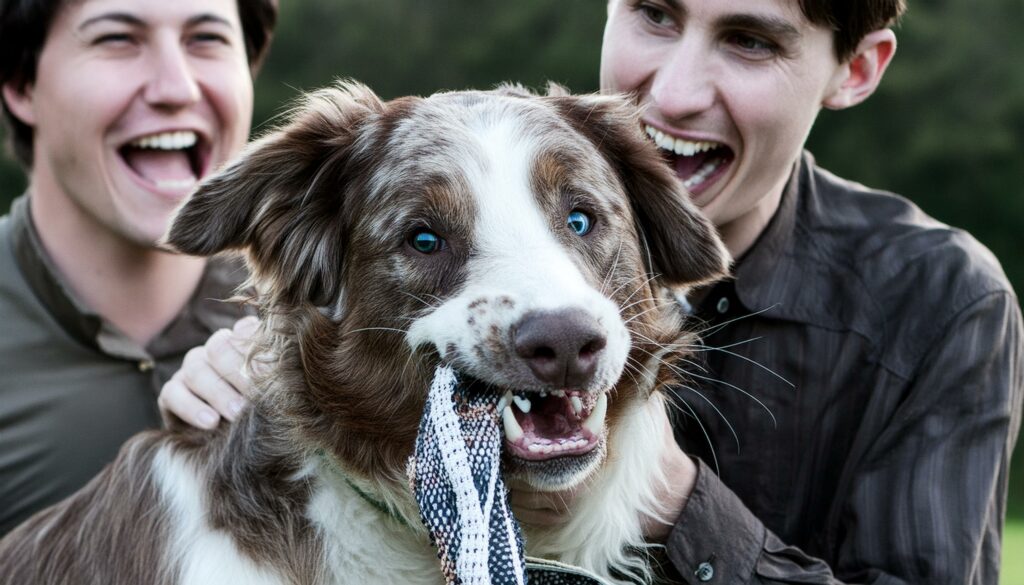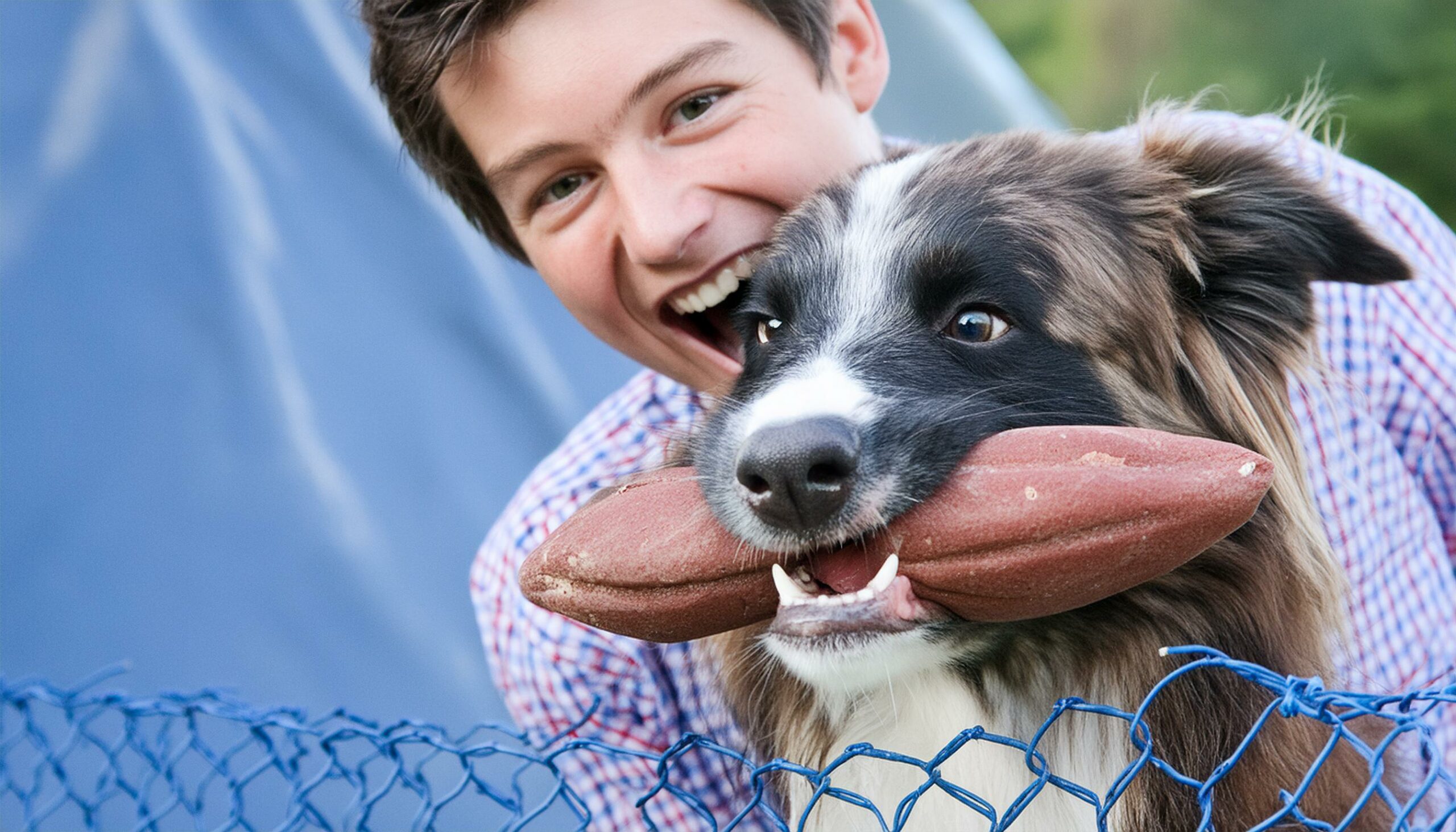Border Collies, with their striking intelligence and boundless energy, are beloved by many as companions and working dogs. However, along with their admirable traits, some Border Collies may exhibit biting behavior. In this comprehensive guide, we delve into the intricacies of Border Collie behavior, exploring the factors contributing to biting tendencies, signs of aggression, prevention strategies, and effective management techniques.
Introduction to Border Collies
Border Collies are a distinctive breed known for their remarkable intelligence, agility, and intense work ethic. Originating from the border regions between Scotland and England, they were bred primarily for their herding capabilities. Over time, they have earned a reputation as one of the most versatile and trainable breeds, excelling in various canine sports and tasks.
Understanding Border Collie Behavior

Intelligence and Energy Levels
One of the defining characteristics of Border Collies is their exceptional intelligence. Ranked among the most intelligent dog breeds, they possess a keen ability to learn and problem-solve. However, this intelligence comes with a caveat – Border Collies require constant mental stimulation to prevent boredom and behavioral issues.
Their high energy levels further contribute to their need for activity and engagement. Without adequate outlets for their energy, such as daily walks, play sessions, and training exercises, Border Collies may become restless and seek alternative ways to channel their energy, potentially leading to undesirable behaviors like biting.
Herding Instincts
Border Collies are hardwired with a strong herding instinct, a trait that has been honed through generations of selective breeding. This instinct drives them to control and manipulate the movement of livestock, using their gaze, body language, and, if necessary, gentle nips to guide their charges.
While herding instincts are an integral part of the Border Collie’s heritage, they can pose challenges in a domestic setting. Without proper training and outlets for their instincts, Border Collies may attempt to herd people, other pets, or even small children, sometimes resorting to biting as a means of communication or control.
Factors Contributing to Biting Behavior
Lack of Socialization
Early socialization plays a crucial role in shaping a Border Collie’s temperament and behavior. Dogs that are not adequately exposed to various people, animals, and environments during their formative weeks may develop fear or anxiety towards unfamiliar stimuli. This lack of socialization can manifest in defensive behaviors, including aggression and biting, as the dog perceives these stimuli as threats.
Fear and Anxiety
Border Collies are sensitive souls that can easily become overwhelmed by stress or fear. When confronted with situations that trigger their anxieties, such as loud noises, unfamiliar surroundings, or intimidating encounters, they may resort to defensive behaviors as a coping mechanism. Biting, in such instances, may be an attempt to establish distance or protect themselves from perceived threats.
Predatory Drive
The innate predatory drive in Border Collies, while invaluable for herding purposes, can also present challenges in a domestic environment. This drive compels them to chase and capture moving objects, a behavior that can inadvertently escalate into nipping or biting, especially if the object of their attention resembles prey, such as small animals or running children.
Signs of Aggression in Border Collies
Recognizing the warning signs of aggression is essential for addressing behavioral issues before they escalate. While every dog is unique, certain cues may indicate that a Border Collie is feeling threatened, anxious, or defensive:
- Body Language Cues: Raised hackles, a stiff posture, dilated pupils, and bared teeth are all indicators of heightened arousal or aggression in Border Collies. Pay attention to their body language, as it can provide valuable insights into their emotional state.
- Vocalizations: Growling, snarling, or barking excessively can also signal aggression or distress in Border Collies. The tone and intensity of their vocalizations may vary depending on the situation, but excessive or prolonged vocalizations should be addressed promptly.
Prevention Strategies
Early Socialization
Start socializing your Border Collie as soon as possible, ideally during the critical socialization period between 3 and 14 weeks of age. Introduce them to a wide range of people, animals, environments, sounds, and experiences in a positive and controlled manner. By exposing them to various stimuli during this period, you can help build their confidence and resilience, reducing the likelihood of fear-based aggression later in life.
Positive Reinforcement Training
Positive reinforcement training techniques, which rely on rewards such as treats, praise, and play, are highly effective for teaching desirable behaviors and shaping a Border Collie’s responses. When addressing biting behavior, focus on redirecting their attention to appropriate toys or activities and rewarding calm, non-aggressive behavior. Consistency, patience, and clear communication are key to successful training outcomes.
Providing Mental and Physical Stimulation
Border Collies thrive on mental and physical stimulation, and providing them with ample opportunities for both is essential for their well-being. Engage their minds with puzzle toys, interactive games, and obedience training exercises, and satisfy their natural instincts with activities like fetch, agility, and herding simulations. A tired Border Collie is a happy Border Collie, less likely to engage in undesirable behaviors like biting out of boredom or frustration.
Dealing with Biting Behavior
Redirecting Attention
When your Border Collie exhibits biting behavior, immediately redirect their attention to an appropriate toy or activity. Encourage them to engage in an alternative behavior, such as chewing on a chew toy or performing a trick, and reward them for making the correct choice. Consistency is key – over time, your Border Collie will learn that biting humans is unacceptable and that there are more rewarding ways to interact with you and their environment.
Seeking Professional Help
If your Border Collie’s biting behavior persists despite your best efforts, don’t hesitate to seek guidance from a professional dog trainer or behaviorist. These experts can assess the underlying causes of the behavior and develop a customized behavior modification plan tailored to your dog’s specific needs. Whether it’s addressing fear-based aggression, predatory behavior, or territorial guarding, professional intervention can make a significant difference in managing and resolving biting issues.
Conclusion
Border Collies are remarkable dogs with a wealth of intelligence, energy, and loyalty to offer their owners. While biting behavior can be a challenging issue to address, it’s essential to approach it with patience, understanding, and a commitment to positive reinforcement training. By recognizing the underlying causes of biting behavior, implementing effective prevention strategies, and seeking professional guidance when necessary, you can foster a harmonious relationship with your Border Collie based on trust, respect, and mutual understanding.
Unique FAQs
Are Border Collies dangerous dogs?
Border Collies are not inherently dangerous dogs. However, like any breed, they require proper training, socialization, and management to prevent behavioral issues from arising.
How can I socialize my Border Collie effectively?
Early and consistent socialization is key to raising a well-adjusted Border Collie. Introduce them to various people, animals, and environments in a positive and controlled manner, focusing on building their confidence and resilience.
Can Border Collies be trained to stop biting?
Yes, Border Collies can be trained to inhibit their biting behavior through positive reinforcement techniques and consistent training. Redirecting their attention to appropriate toys or activities and rewarding non-aggressive behavior is essential for success.
Are Border Collies good with children?
Border Collies can make wonderful family pets, but they require supervision around young children due to their herding instincts and high energy levels. Proper training and socialization are essential for ensuring a positive relationship between Border Collies and children.
What should I do if my Border Collie displays aggressive behavior?
If your Border Collie exhibits aggressive behavior, it’s crucial to address the issue promptly and seek guidance from a professional dog trainer or behaviorist. They can help identify the underlying causes of the behavior and develop a customized behavior modification plan to address it effectively.
